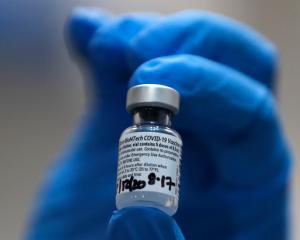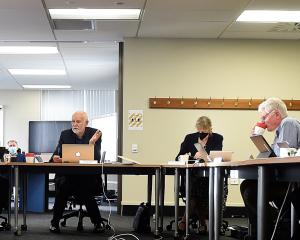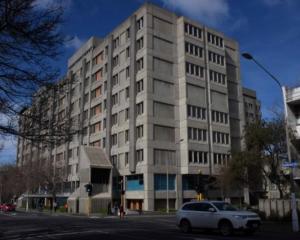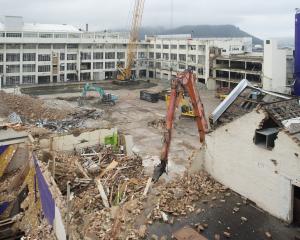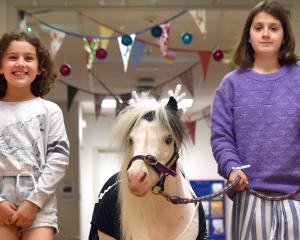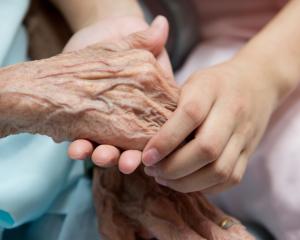In a letter to staff on Friday, South Island Neurosurgical Service Governance Board chairman Prof Andrew Kaye announced Martin MacFarlane's appointment as clinical leader of the South Island service, effective immediately.
Mr MacFarlane will travel to Dunedin Hospital tomorrow to meet staff.
Southern District Health Board chairman Joe Butterfield, a member of the governance board, told the Otago Daily Times Mr MacFarlane had accepted Dunedin would have resident neurosurgeons.
"Martin has assured me and the [neurosurgical governance] board that he accepts the decision and the direction of the [neurosurgical governance] board and will do his utmost to see [the new service] implemented."
Dunedin Hospital's intensive-care unit clinical leader, Mike Hunter, who vociferously opposed the Christchurch single-site option, said it was "too early to judge" the wisdom of Mr MacFarlane's appointment, but he accepted it and looked forward to attending the "meet and greet".
"Obviously, there have been significant conflicts in the past between us in terms of our views being diametrically different.
"We will wait and see."
Last year, the acting Director-general of Health appointed an expert panel to figure out how the service could best be delivered, because the Canterbury and Southern DHBs could not agree whether there would be permanent neurosurgeons in Dunedin and Christchurch.
The DHBs agreed there should be a single South Island service, but disagreed over whether it should be delivered from one or two hospitals.
In a letter to staff on Friday, South Island Neurosurgical Service Governance Board chairman Prof Andrew Kaye announced Martin MacFarlane's appointment as clinical leader of the South Island service, effective immediately.
Mr MacFarlane will travel to Dunedin Hospital tomorrow to meet staff.
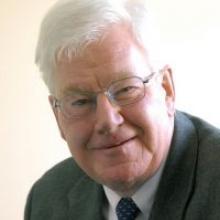
"Martin has assured me and the [neurosurgical governance] board that he accepts the decision and the direction of the [neurosurgical governance] board and will do his utmost to see [the new service] implemented."
Dunedin Hospital's intensive-care unit clinical leader, Mike Hunter, who vociferously opposed the Christchurch single-site option, said it was "too early to judge" the wisdom of Mr MacFarlane's appointment, but he accepted it and looked forward to attending the "meet and greet".
"Obviously, there have been significant conflicts in the past between us in terms of our views being diametrically different.
"We will wait and see."
Last year, the acting Director-general of Health appointed an expert panel to figure out how the service could best be delivered, because the Canterbury and Southern DHBs could not agree whether there would be permanent neurosurgeons in Dunedin and Christchurch.
The DHBs agreed there should be a single South Island service, but disagreed over whether it should be delivered from one or two hospitals.
November, the expert panel recommended Dunedin have three neurosurgeons, two with academic duties at the University of Otago, with the service to be guided by a governance board led by Prof Kaye, a Melbourne neurosurgeon.
Fears the service could be lost to the South culminated in a protest march in Dunedin last August in which up to 10,000 people took to the streets.
In September, Mr MacFarlane, as clinical leader of neurosurgery at Christchurch Hospital, gave a presentation to clinicians and the expert panel arguing the service must be delivered from Christchurch.
This was so the service could attract appropriately trained staff, gain funding for high-tech equipment, allow for sub-specialisation and succession planning.
In December, Mr MacFarlane and fellow neurosurgeon Ronald Boet reportedly threatened to resign if the expert panel's report was implemented.
Then Labour health spokeswoman Ruth Dyson revealed the development in Parliament; Mr Boet was subsequently quoted in The Press saying it was "absolutely ridiculous" no Canterbury neurosurgeons were on the governance board.
Neither neurosurgeon confirmed the resignation threat, but the pair were jointly quoted saying they were "in discussions" with the Ministry of Health about their concerns.
In the notice to Canterbury and Southern staff, Prof Kaye said that as foundation neurosurgeon of Christchurch neurosurgery Mr MacFarlane brought a "proud tradition" of service development.
Neurosurgery was established at Christchurch Hospital in 1981.
"Involved in the original commissioning and setting up of the neurosurgical ward and the neurosurgical operating theatre, Mr MacFarlane has developed and maintained a close liaison with other medical specialties, nursing and allied health services and also been medical adviser to the Canterbury DHB on wider surgical services."
His role was 0.5 full-time equivalent "[which] means that Mr MacFarlane will take a hands-on role in stabilising and developing the South Island service's Dunedin node and in further developing the Christchurch node."
Prof Kaye said Mr MacFarlane was "committed to working with the governance board and South Island DHBs to develop a regional neurosurgical service encompassing all South Island centres/DHBs and therefore, the whole population."
"In appointing Mr MacFarlane as the clinical director for the South Island neurosurgery service, the governance board has found strong, credible clinical leadership with the vision and passion to fulfil this role, and he has the mandate of the whole board."
Dunedin is still relying on locum neurosurgeons, after a Swedish neurosurgeon expected to arrive this month pulled out.

